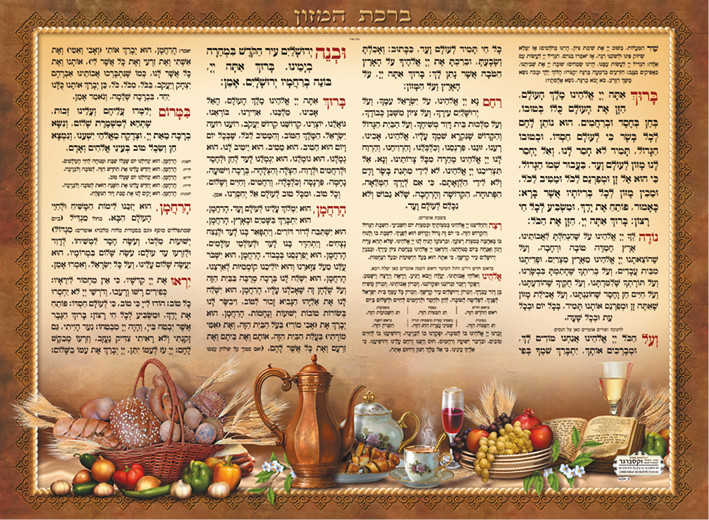Rav Kook explains the reason for an interesting distinction between the Brocha we recite when eating and the Brocha we recite when studying Torah. When it comes to eating we only find a Torah obligation to recite a Brocha after we eat, not before. When it comes to Torah study the opposite is true, the Torah only obligates us to recite a Brocha prior to studying Torah, not afterwards.
He explains the distinction as follows. For many people their focus while eating is solely on the here and now. They want food that is very tasty for them to enjoy right now. Unfortunately, they do not focus on the long term ramifications of their eating. Are they filling up on calories that have no nutritional value? Are the foods that they are eating likely to lead to medical issues later in life? Therefore the Torah says to recite the Brocha after eating to remind you that while eating you should not just be focused on what you are doing now, but on what the results will be afterwards.
When it comes to Torah study the opposite is often true. Many people are not focused on enjoying the study, maybe they have never experienced joy in studying, and are focused instead on the idea that if they study Torah they will receive a reward in the afterlife. Or maybe they are hoping that the result of their learning is that when they are finished they will have better character or, at the very least, understand better how to perform the Mitzvos. The Torah is telling us to make the Brocha prior to learning so that we remember to be focused on the present, that the very act of learning is meant to bring us great joy and pleasure. We should be focused on how to enjoy the activity and not just on the result that will come later on down the road.
He explains the distinction as follows. For many people their focus while eating is solely on the here and now. They want food that is very tasty for them to enjoy right now. Unfortunately, they do not focus on the long term ramifications of their eating. Are they filling up on calories that have no nutritional value? Are the foods that they are eating likely to lead to medical issues later in life? Therefore the Torah says to recite the Brocha after eating to remind you that while eating you should not just be focused on what you are doing now, but on what the results will be afterwards.
When it comes to Torah study the opposite is often true. Many people are not focused on enjoying the study, maybe they have never experienced joy in studying, and are focused instead on the idea that if they study Torah they will receive a reward in the afterlife. Or maybe they are hoping that the result of their learning is that when they are finished they will have better character or, at the very least, understand better how to perform the Mitzvos. The Torah is telling us to make the Brocha prior to learning so that we remember to be focused on the present, that the very act of learning is meant to bring us great joy and pleasure. We should be focused on how to enjoy the activity and not just on the result that will come later on down the road.

No comments:
Post a Comment